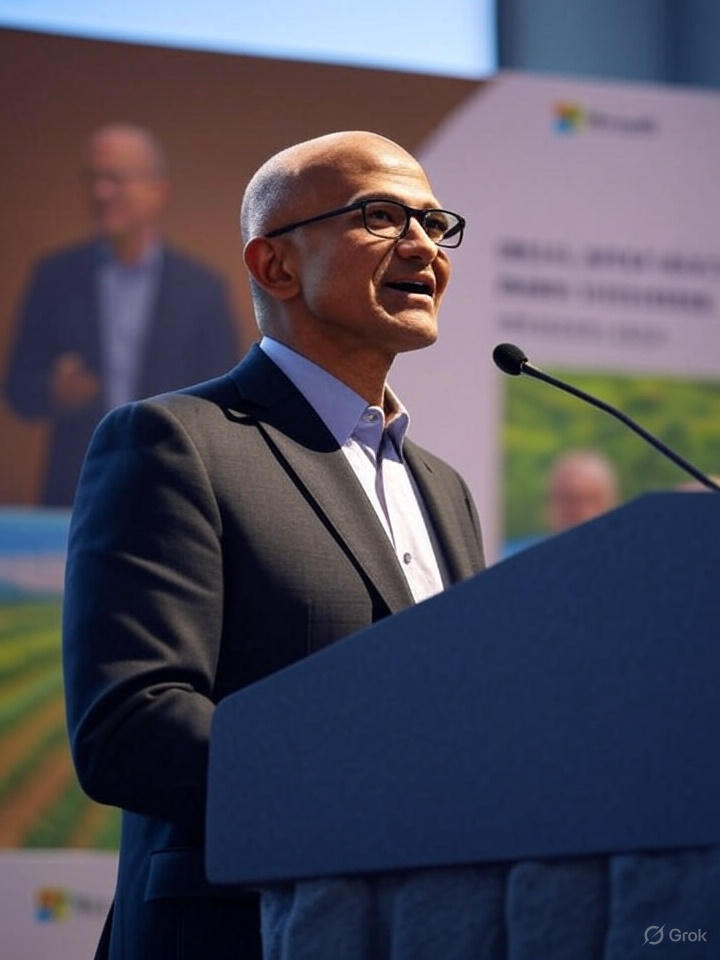Dragon Copilot: AI Assistant for Healthcare
Microsoft announced Dragon Copilot, a voice-powered AI assistant tailored for clinical settings. Built on Nuance’s ambient listening technologies, it captures doctor-patient conversations and automatically generates clinical documentation like after visit summaries, referral letters, and evidence-based notes supporting multiple languages and natural dictation. The aim is to spare clinicians from burdensome paperwork, reducing administrative load and clinician burnout, thereby enhancing patient care interactions (Microsoft, Microsoft Azure, The Verge).
Key features include
- Ambient voice capture during patient visits, using AI to filter and identify clinical speech.
- Automated summaries: after visit summaries, clinical evidence synopses, and referral letters all patient-ready.
- Multilingual support and integration with trusted medical sources.
- Built-in compliance and accuracy safeguards, aligning with healthcare security and regulatory requirements (The Wall Street Journal, Globedge).
Extensive trials at institutions like Stanford and Michigan Health highlight significant reductions in physician documentation time from 90 minutes per day to under 30 with many doctors reporting improved patient engagement and reduced burnout (The Wall Street Journal).
Phi‑4 Multimodal & Mini: Expanding Small Language Models
Microsoft unveiled two new variants in its Phi‑4 SLM series on Azure and Hugging Face platforms:
- Phi‑4‑multimodal: A 5.6 billion parameter model that processes speech, vision, and text in a unified architecture enabling context aware, multimodal applications.
- Phi‑4‑mini (mini‑instruct): A compact 3.8 billion parameter model optimized for efficient text based reasoning and instruction following. It includes expanded vocabulary, improved multilingual performance, and lightweight function calling capabilities (Microsoft Azure, TECHCOMMUNITY.MICROSOFT.COM).
These releases demonstrate Microsoft’s commitment to scalable, efficient AI models that serve both large scale reasoning and resource constrained environments.
FFA Collaboration: Teaching AI & Smart Sensors in Farming
In collaboration with the National FFA Organization, Microsoft is expanding FarmBeats for Students, an education initiative that integrates smart sensors, data science, and AI into agricultural classroom learning. The program teaches students how to use IoT and AI tools for precision agriculture such as analyzing soil, weather, and crop data to inform decisions preparing the next generation for tech savvy farming roles (National FFA Organization).

Strategic & Societal Impact
| Domain | Impact |
|---|---|
| Healthcare | Dragon Copilot could save clinicians hours daily, improve patient engagement, and reduce burnout but still depends on physician verification of AI generated notes (The Wall Street Journal). |
| AI Development | Phi‑4 multimodal and mini models provide flexible options for developers, balancing capability with efficiency across different deployment needs (Microsoft Azure, TECHCOMMUNITY.MICROSOFT.COM). |
| Education | The FFA Microsoft initiative equips young learners with practical skills in cloud computing, data science, and smart tech essential for modern agriculture (National FFA Organization, michiganfarmnews.com). |
Outlook & Considerations
- Clinical verification remains essential: Although pilots at Stanford and other systems showed time savings and enhanced patient focus, physicians continue to review AI generated notes to address potential inaccuracies (The Wall Street Journal).
- Responsible AI principles: Microsoft emphasizes that the Phi‑4 series aligns with commitments to reliability, privacy, transparency, and accountability (Microsoft Azure).
- Bridging digital and agricultural futures: By infusing AI education into farming curriculums, Microsoft and FFA are paving the way for tech driven agricultural innovation and career readiness.
Final Summary
Microsoft’s introduction of Dragon Copilot, powered by ambient AI and Nuance’s speech technologies, promises to transform clinical workflows by automating medical documentation allowing doctors to spend more time with patients and less on admin. The assistant’s deployment in top medical centers shows real world reductions in documentation time and operational improvements, though clinician oversight remains vital to ensure accuracy.
On the AI model front, the expansion of the Phi‑4 family with multimodal and mini variants adds versatility and scalability to Microsoft’s AI offerings. Developers now have access to efficient models capable of processing text, voice, and images concurrently, broadening the scope of accessible AI applications.
The strategic partnership with the National FFA Organization to launch FarmBeats for Students aligns with Microsoft’s broader mission to infuse AI into key societal sectors including education and agriculture empowering students with future ready skills in AI and IoT platforms for sustainable farming.
Together, these initiatives reflect Microsoft’s multifaceted AI approach: addressing urgent healthcare needs, enabling advanced language and multimodal AI, and investing in educational pipelines that support technological innovation in essential industries. These developments underscore the company’s role in shaping a future where AI enabled tools enhance productivity, learning, and well being across sectors.

